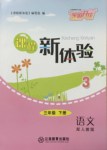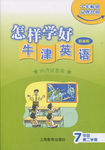
During my childhood in the 1960s, my parents were always busy with work and meetings. They left early in the morning and came back late in the evening. My sisters, my brother and I were left alone with Grandma. We saw our parents only on Sundays and during the few holidays. The only long period (一段)of time during which the whole family could be together once a year was the Spring Festival. We missed our parents badly, but didn’t say so because we had been told that hard work was everyone’s duty and that we could not have our own small family without a big family. Later I was a hard working student and, during summer or winter holidays, often stayed alone at university to have more time to study. I was always encouraged by my parents, for whom the holiday was less important than “work” and “study”. Holidays were a waste of time and I felt as if I had done something wrong if I took a holiday or did nothing during a holiday.
I spent the most difficult period of my life abroad. But when I joined this company, my boss didn’t seem to think it right for me to work like that. When I called him at home after office hours for business purposes (目的), he politely told me that he preferred talking about work with me in the office.
When the holiday season came near, he asked me to plan my leave beforehand (提前). He talked with me about his holiday and also asked about mine. For him, leave was a right. Giving up a holiday for the company is encouraged in China, but is foolish here. I began to think about holidays.
Today my parents are retired (退休)and stay home with a lot of time for their children. But we are all grown- up and live far away. We miss each other, but we cannot afford to see each other very much and they often feel sorry for the fact that they were too busy to be able to take care of us when we were young.
Nowadays, Chinese take long weekends and have paid holidays. But do they use their holidays to enjoy family life? I hope so because my experience in China and Europe has helped me understand that work is not my whole life and that a family is also very important. I do not want to feel sorry in the future as my parents do and I certainly spend as much time with my son as possible. There is nothing wrong with either working hard or taking holidays, but we shouldn’t have one instead of the other. It is important to keep a balance (平衡)between work and play.
1. What do the underlined words “paid leave” mean?
A. You have to pay when you take a holiday.
B. Someone will pay for your holiday.
C. You are still paid when you have your holiday.
D. You can’t leave until you pay for the holiday.
2. What is the main idea of this passage?
A. Working is the only part of the life.
B. Traveling is the best way to spend your holiday.
C. Enjoying holidays is as important as working
D. Sharing happiness with your family is more important
3. The writer talks about her own experience because she hopes that the Chinese will _______. A. plan their holiday beforehand B. get used to long holidays and enjoy themselves C. give up a holiday for their work D. bring business home after work hours
 芝麻开花课程新体验系列答案
芝麻开花课程新体验系列答案 怎样学好牛津英语系列答案
怎样学好牛津英语系列答案科目:初中英语 来源:轻松新课堂·初中英语作业本·9A(牛津版) 牛津版 题型:029
用方框内所给词组的适当形式填空。
1.I ________ to be a volunteer to West China.
2.When are you allowed ________ with your friends?
3.They shouldn't be allowed to drive now.They aren't ________ at that age.
4.Young people ________ if they wear their own clothes.
5.We like to study with a group because we can ________ each other.
6.Our teachers ________ us so they never allow us to copy others' homework.
7.________ I saw one of my friends on a bus.
查看答案和解析>>
科目:初中英语 来源:2012-2013学年浙江省温岭市第三中学八年级上学期期中考试英语试卷(带解析) 题型:单选题
------When are you leaving?
-------I'm leaving_______.
| A.in next week | B.last week |
| C.on the 12th | D.in Sunday morning |
查看答案和解析>>
科目:初中英语 来源:2013届江苏省南京市鼓楼区中考二模英语卷(带解析) 题型:单选题
—When are you going to fly to Taiwan this summer?
—_________ we finish school. It will be a great holiday.
| A.Because | B.Since | C.Even though | D.Only if |
查看答案和解析>>
科目:初中英语 来源:2012届浙江省台州六校九年级第二次联考英语试卷(带解析) 题型:阅读理解
阅读下面材料,从每题所给的A、B、C、D四个选项中选出最佳答案。
A

【小题1】 “Three Little Cows” is ___________.
| A.the name of a zoo |
| B.the name of a movie |
| C.the name of a restaurant |
| D.the name of a party |
| A.On Monday and Friday, 3-6 pm. |
| B.From Monday to Friday, 3-6 pm. |
| C.On Wednesday, 6-10 pm. |
| D.At any time. |
| A.have free wine |
| B.make a bottle of wine |
| C.pay $10 less for the wine |
| D.have wine for only $10 |
查看答案和解析>>
科目:初中英语 来源:2010-2011学年江苏省如皋市初三上学期期末考试英语卷 题型:单项填空
---Could you tell me _____?
---About two months.
A. when are you leaving for Shanghai B. how often you go to the school library
C. how many tickets have you booked D. how long you have been at this school
查看答案和解析>>
湖北省互联网违法和不良信息举报平台 | 网上有害信息举报专区 | 电信诈骗举报专区 | 涉历史虚无主义有害信息举报专区 | 涉企侵权举报专区
违法和不良信息举报电话:027-86699610 举报邮箱:58377363@163.com